Taking A Sustainable Lead
Over many years, Qatar Foundation (QF) has channeled its ecosystem, innovation, expertise, and ability to bring different parties together to unlock ideas and solutions into becoming a leader in sustainability – for Qatar, the region, and the world.
And building on the legacy of this work, in March QF announced the launch of its Earthna Center for a Sustainable Future, a non-profit policy center focused on sustainability in hot and arid climates, sustainable energy, and maximizing QF’s Education City as a test bed for the development and implementation of new sustainable technologies.
The center’s goal is to harness QF’s education, research, and innovation capacity into generating sustainable solutions that enhance Qatar’s role in global sustainability policy, in areas where the nation has unique insight and capabilities.
Unveiling Earthna at the Doha Forum in March, its Executive Director, Gonzalo Castro de la Mata, said: “Qatar sits at the heart of global challenges, which gives us an incredible opportunity to lead global dialogue and promote sustainable policy.
“Earthna will bring together local and global experts to design and advocate for solutions with global impact.”
Over many years, Qatar Foundation (QF) has channeled its ecosystem, innovation, expertise, and ability to bring different parties together to unlock ideas and solutions into becoming a leader in sustainability – for Qatar, the region, and the world.
And building on the legacy of this work, in March QF announced the launch of its Earthna Center for a Sustainable Future, a non-profit policy center focused on sustainability in hot and arid climates, sustainable energy, and maximizing QF’s Education City as a test bed for the development and implementation of new sustainable technologies.
The center’s goal is to harness QF’s education, research, and innovation capacity into generating sustainable solutions that enhance Qatar’s role in global sustainability policy, in areas where the nation has unique insight and capabilities.
Unveiling Earthna at the Doha Forum in March, its Executive Director, Gonzalo Castro de la Mata, said: “Qatar sits at the heart of global challenges, which gives us an incredible opportunity to lead global dialogue and promote sustainable policy.
“Earthna will bring together local and global experts to design and advocate for solutions with global impact.”
QF’s newest center, designed to help shape a sustainable future for Qatar and the world, was unveiled – along with plans for the nation’s first recycling hub, and a partnership that weaves football into education.
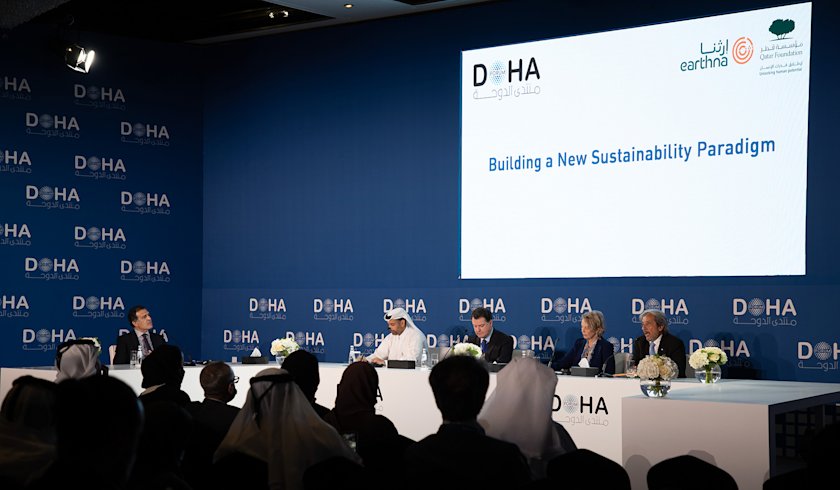
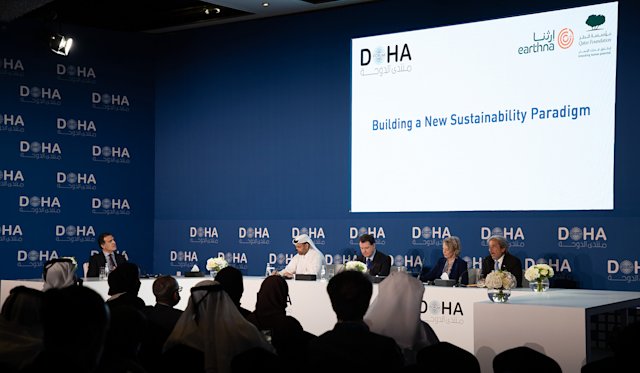
By creating Earthna, we are bridging our research and community strengths to address new policy solutions.
Solutions in the Cities
The launch of Earthna – which is focused on thought leadership in policymaking; establishing and promoting policy priorities; strengthening links between education, research, and industry; and extending QF’s sustainability collaborations – came as it hosted a Doha Forum panel discussion exploring how cities can be the nucleus of sustainable solutions.
Qatar’s actions to reduce its emissions and become more sustainable were outlined by His Excellency Sheikh Dr. Faleh bin Nasser bin Ahmed bin Ali Al Thani, Minister of Environment and Climate Change, while Manuel Pulgar-Vidal, the World Wildlife Fund’s Leader of Climate and Energy Global Practice, explained that all cities must have “a net-zero vision – that is the first step.”
At the Doha Forum, the World Innovation Summit for Health (WISH) – QF’s global healthcare initiative – also launched Friends of the Global Fund Qatar, making Qatar the first Middle Eastern country to join an international partnership whose mission is to eradicate tuberculosis, malaria, and HIV/AIDS.
And a WISH-organized Doha Forum panel session saw Mark Suzman, CEO of the Bill and Melinda Gates Foundation, warn that, even after experiencing COVID-19, the world is “still not ready to tackle a future pandemic equitably”.
The launch of Earthna – which is focused on thought leadership in policymaking; establishing and promoting policy priorities; strengthening links between education, research, and industry; and extending QF’s sustainability collaborations – came as it hosted a Doha Forum panel discussion exploring how cities can be the nucleus of sustainable solutions.
Qatar’s actions to reduce its emissions and become more sustainable were outlined by His Excellency Sheikh Dr. Faleh bin Nasser bin Ahmed bin Ali Al Thani, Minister of Environment and Climate Change, while Manuel Pulgar-Vidal, the World Wildlife Fund’s Leader of Climate and Energy Global Practice, explained that all cities must have “a net-zero vision – that is the first step.”
At the Doha Forum, the World Innovation Summit for Health (WISH) – QF’s global healthcare initiative – also launched Friends of the Global Fund Qatar, making Qatar the first Middle Eastern country to join an international partnership whose mission is to eradicate tuberculosis, malaria, and HIV/AIDS.
And a WISH-organized Doha Forum panel session saw Mark Suzman, CEO of the Bill and Melinda Gates Foundation, warn that, even after experiencing COVID-19, the world is “still not ready to tackle a future pandemic equitably”.
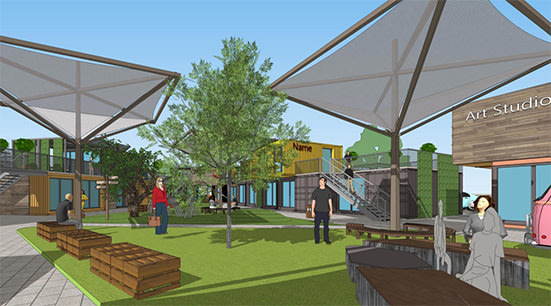

Sustaining and restoring nature goes hand in hand with all elements of climate resiliency.
Earthna’s impact areas are:
- Sustainability frameworks for hot and arid countries
- Food security and adaptation
- Climate change and energy transition
- Circularity
- Resilient cities
- Biodiversity and ecosystems
- Education, awareness, and values
Empowerment for the Environment
Across the world, communities marked Global Recycling Day in March, and QF used the occasion to unveil plans for Qatar’s first recycling hub – Green Island.
Developed in partnership with Seashore Group, Green Island – opening in 2023 at QF’s Education City – will be made of shipping containers donated by maritime and logistics company Milaha, be partially powered by solar panels, and provide Qatar’s community with six streams for recycling their waste while also acting a space for people to educate themselves about how to protect the environment.
“It is no secret there is a gaping hole when it comes to recycling in Qatar,” said QF’s Sustainability Manager, Nawal Al-Sulaiti. “And the need to fill that gap and do more to empower the community, particularly the younger generation, and arm them with the tools required to become environmentally conscious citizens is what led to the birth of Green Island.”
Close to the site where Green Island will be based, QF’s Education City Gift Shop began selling sustainable face masks created by local company RSPR. The masks are moisture-wicking, meaning they need less washing, and use antimicrobial treatments that are safer for water systems.
Across the world, communities marked Global Recycling Day in March, and QF used the occasion to unveil plans for Qatar’s first recycling hub – Green Island.
Developed in partnership with Seashore Group, Green Island – opening in 2023 at QF’s Education City – will be made of shipping containers donated by maritime and logistics company Milaha, be partially powered by solar panels, and provide Qatar’s community with six streams for recycling their waste while also acting a space for people to educate themselves about how to protect the environment.
“It is no secret there is a gaping hole when it comes to recycling in Qatar,” said QF’s Sustainability Manager, Nawal Al-Sulaiti. “And the need to fill that gap and do more to empower the community, particularly the younger generation, and arm them with the tools required to become environmentally conscious citizens is what led to the birth of Green Island.”
Close to the site where Green Island will be based, QF’s Education City Gift Shop began selling sustainable face masks created by local company RSPR. The masks are moisture-wicking, meaning they need less washing, and use antimicrobial treatments that are safer for water systems.


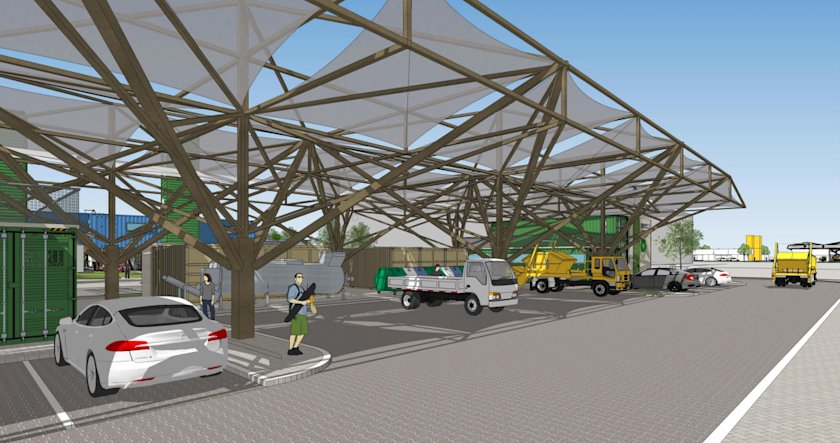
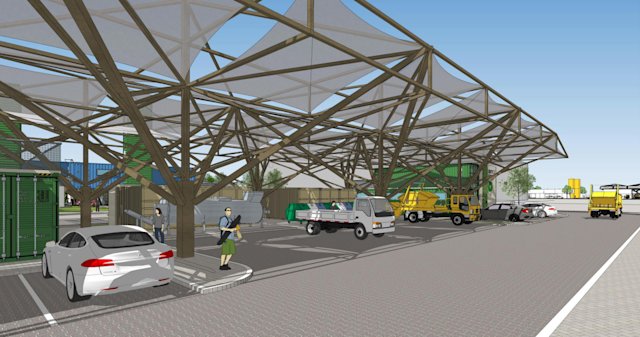
Education and awareness will be a primary objective of the Green Island project – a lot of effort has been put into making it an interactive and active learning experience.
Green Island spans 8,000 square meters and is made up of 95 end-of-life shipping containers
Schooled in Sports
Away from the pitch and into the classroom, teachers at QF schools encouraged their students to develop a love of football – and recognize its value to learning and life – by weaving sports-centered activities into their classes through the Football for Schools (F4S) program.
In March 2022, QF and Generation Amazing – the Supreme Committee for Delivery & Legacy’s (SC) human and social legacy project – sealed an agreement to roll out F4S in schools across Qatar. Run globally by FIFA and UNESCO, it aims to educate, develop, and empower children and make football more accessible to both boys and girls, by incorporating the sport into education systems.
Ahead of the FIFA World Cup Qatar 2022™, F4S training courses at QF saw teachers from Qatar joined by compatriots from countries including Lebanon, Algeria, Egypt, Libya, Morocco, and Tunisia as they learned how to deliver the program in their schools and use it to educate students about life skills and life lessons.
As Muhammed Saleh, a PE teacher at QF’s Awsaj Academy, explained: “It has helped our students become more enthusiastic about football, and this has had a positive effect on their physical and social abilities, improving skills such as patience, trust, and reliability.”
Away from the pitch and into the classroom, teachers at QF schools encouraged their students to develop a love of football – and recognize its value to learning and life – by weaving sports-centered activities into their classes through the Football for Schools (F4S) program.
In March 2022, QF and Generation Amazing – the Supreme Committee for Delivery & Legacy’s (SC) human and social legacy project – sealed an agreement to roll out F4S in schools across Qatar. Run globally by FIFA and UNESCO, it aims to educate, develop, and empower children and make football more accessible to both boys and girls, by incorporating the sport into education systems.
Ahead of the FIFA World Cup Qatar 2022™, F4S training courses at QF saw teachers from Qatar joined by compatriots from countries including Lebanon, Algeria, Egypt, Libya, Morocco, and Tunisia as they learned how to deliver the program in their schools and use it to educate students about life skills and life lessons.
As Muhammed Saleh, a PE teacher at QF’s Awsaj Academy, explained: “It has helped our students become more enthusiastic about football, and this has had a positive effect on their physical and social abilities, improving skills such as patience, trust, and reliability.”
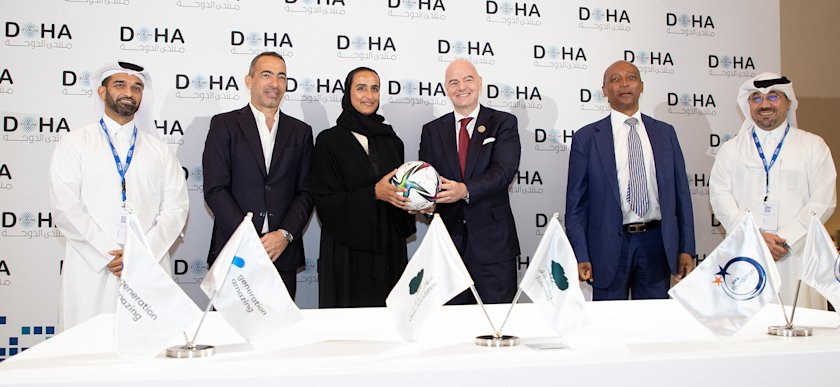
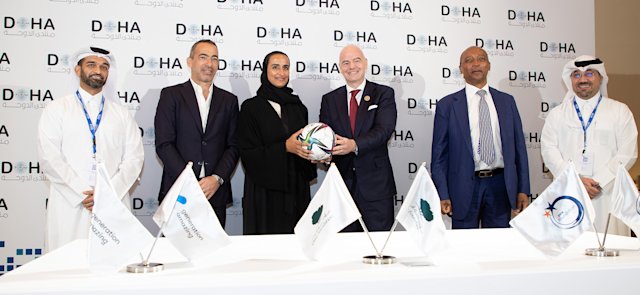
We look forward to working together over the coming months and years on many common projects, and particularly to deliver Football for Schools in Qatar.
F4S aims to support the education and development of 700 million children worldwide
Research for Impact
From keeping millions of football fans cool during matches to tackling diabetes and ensuring Qatari patients get the right dose of the right drug at the right time, the impact of QF-funded research was spotlighted in March.
A research project backed by Qatar National Research Fund (QNRF) led to the development of the outdoor cooling technologies for FIFA World Cup Qatar 2022™ stadiums, spearheaded by Dr. Saud Ghani, Professor of Mechanical Engineering at Qatar University – also known as ‘Dr. Cool’.
Meanwhile, the findings of a QNRF-funded clinical trial led by an expert in medicine at QF partner university Weill Cornell Medicine-Qatar (WCM-Q) demonstrated how intensive lifestyle interventions can lead to the successful remission of Type 2 diabetes. It influenced the establishment of Hamad Medical Corporation’s diabetes reversal program – the first of its kind in the region.
And another project funded by QNRF saw Dr. Amal Robay, a WCM-Q researcher, lead Qatar’s largest effort in the field of pharmacogenomics – studying how the Qatari population’s response to medicine is affected by their genes, a vital element of advancing precision treatments for each patient.
From keeping millions of football fans cool during matches to tackling diabetes and ensuring Qatari patients get the right dose of the right drug at the right time, the impact of QF-funded research was spotlighted in March.
A research project backed by Qatar National Research Fund (QNRF) led to the development of the outdoor cooling technologies for FIFA World Cup Qatar 2022™ stadiums, spearheaded by Dr. Saud Ghani, Professor of Mechanical Engineering at Qatar University – also known as ‘Dr. Cool’.
Meanwhile, the findings of a QNRF-funded clinical trial led by an expert in medicine at QF partner university Weill Cornell Medicine-Qatar (WCM-Q) demonstrated how intensive lifestyle interventions can lead to the successful remission of Type 2 diabetes. It influenced the establishment of Hamad Medical Corporation’s diabetes reversal program – the first of its kind in the region.
And another project funded by QNRF saw Dr. Amal Robay, a WCM-Q researcher, lead Qatar’s largest effort in the field of pharmacogenomics – studying how the Qatari population’s response to medicine is affected by their genes, a vital element of advancing precision treatments for each patient.
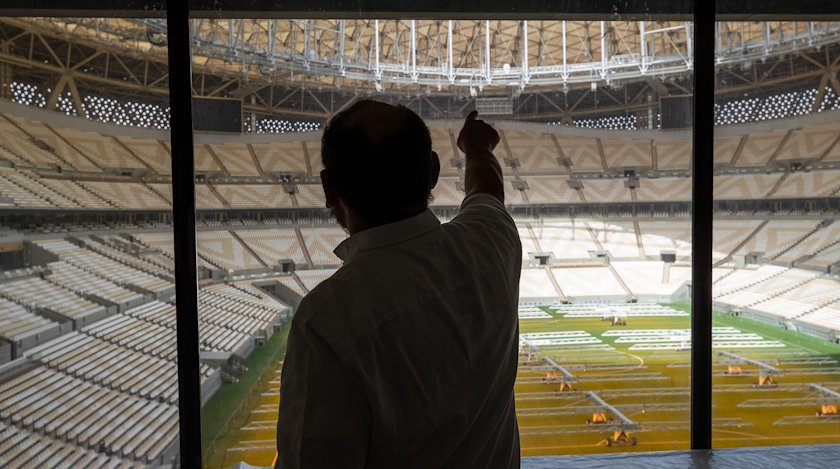
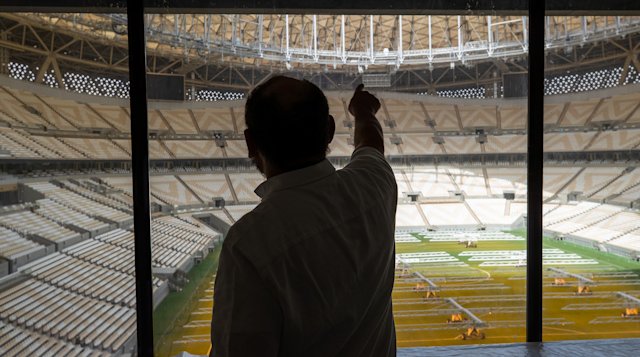
I am confident the success of this clinical trial will play a major role in supporting Qatar’s diabetic population reverse their diabetes, and significantly improve their health and quality of life.
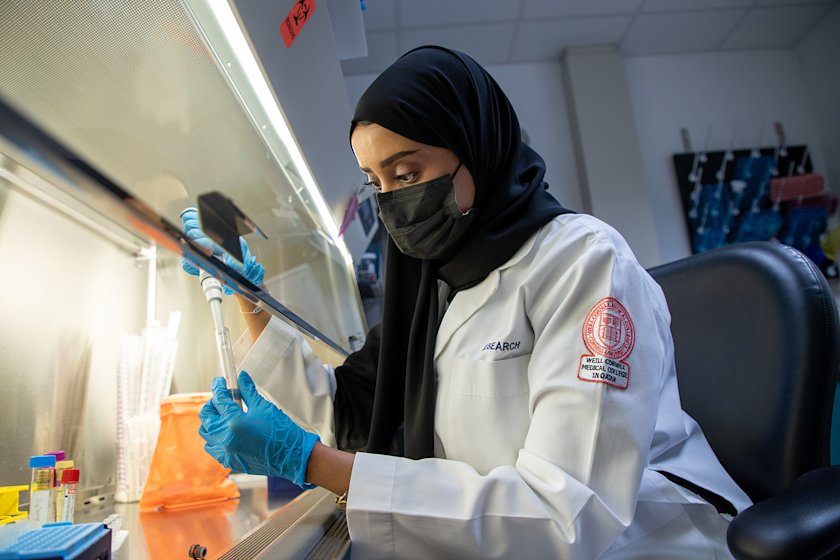
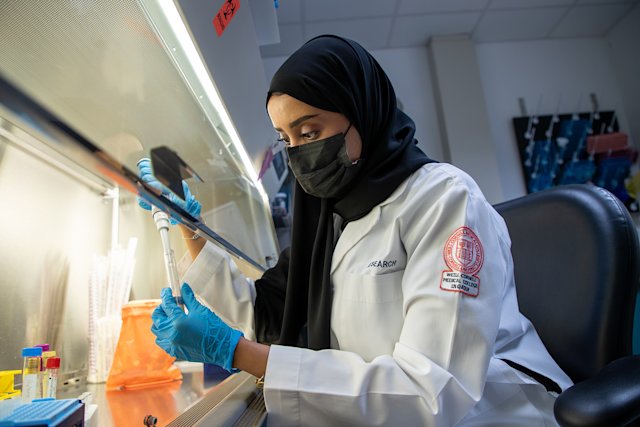
Equine Advances
Precision health is not just for humans – as QF’s Equine Veterinary Medical Center (EVMC) showed in March by launching Inara, Qatar’s first biobank for horses.
With its name meaning ‘enlighten’ in Arabic, Inara is focused on the genetic preservation, long-term storage, and retrieval of biological samples from horses, storing specimens such as DNA, stem cells, and tissue samples. It will allow horse-owners to safeguard valuable genetic information from their animals and secure stem cells extracted at EVMC’s regenerative medicine laboratory.
The equine biobank will also support research into new drugs, treatments, genetic tests, and public health strategies that benefit animals, with EVMC’s Head of Research and Education, Dr. Tatiana Vinardell, saying: “The launch of Inara was a natural progression for EVMC in becoming a major regional and international stakeholder of equine veterinary regenerative medicine.
“This platform will enhance the quality of precision medicine treatments and contribute to the advancement of equine health.”
Precision health is not just for humans – as QF’s Equine Veterinary Medical Center (EVMC) showed in March by launching Inara, Qatar’s first biobank for horses.
With its name meaning ‘enlighten’ in Arabic, Inara is focused on the genetic preservation, long-term storage, and retrieval of biological samples from horses, storing specimens such as DNA, stem cells, and tissue samples. It will allow horse-owners to safeguard valuable genetic information from their animals and secure stem cells extracted at EVMC’s regenerative medicine laboratory.
The equine biobank will also support research into new drugs, treatments, genetic tests, and public health strategies that benefit animals, with EVMC’s Head of Research and Education, Dr. Tatiana Vinardell, saying: “The launch of Inara was a natural progression for EVMC in becoming a major regional and international stakeholder of equine veterinary regenerative medicine.
“This platform will enhance the quality of precision medicine treatments and contribute to the advancement of equine health.”
Inara represents a breakthrough in clinical and research models. As its name suggests, it will pave the way for further discoveries.
QF’s Equine Veterinary Medical Center is home to:
- An equine referral hospital
- A veterinary diagnostic laboratory
- A clinical research laboratory
Revolutionizing Reading
Bringing people together to celebrate cultural heritage and learn about the rich history of Arabic literature, a new QF campaign – One Book, One Doha - invited the community to immerse themselves in a shared reading experience.
Created by QF’s Qatar Reads initiative, the campaign – in cooperation with the Ministry of Culture and Qatar National Library – ran across 21 days in March and ended with a four-day festival where those participating in One Book, One Doha had the opportunity to meet, interact, and discuss their reading journey. The selected book for the campaign’s launch was ‘Kalila and Dimna’, one of the most famous works in the history of Arabic literature.
“This campaign aims to revolutionize the way we think about Arabic literature,” said Fatema Al Malki, Qatar Reads project manager.
“By rediscovering cultural icons, we’re creating a shared experience, engaging in invigorating discussions, and kickstarting creativity. Qatar Reads aims to bring together the community through different reading initiatives, and we hope this nationwide movement is just the beginning.”
Bringing people together to celebrate cultural heritage and learn about the rich history of Arabic literature, a new QF campaign – One Book, One Doha - invited the community to immerse themselves in a shared reading experience.
Created by QF’s Qatar Reads initiative, the campaign – in cooperation with the Ministry of Culture and Qatar National Library – ran across 21 days in March and ended with a four-day festival where those participating in One Book, One Doha had the opportunity to meet, interact, and discuss their reading journey. The selected book for the campaign’s launch was ‘Kalila and Dimna’, one of the most famous works in the history of Arabic literature.
“This campaign aims to revolutionize the way we think about Arabic literature,” said Fatema Al Malki, Qatar Reads project manager.
“By rediscovering cultural icons, we’re creating a shared experience, engaging in invigorating discussions, and kickstarting creativity. Qatar Reads aims to bring together the community through different reading initiatives, and we hope this nationwide movement is just the beginning.”
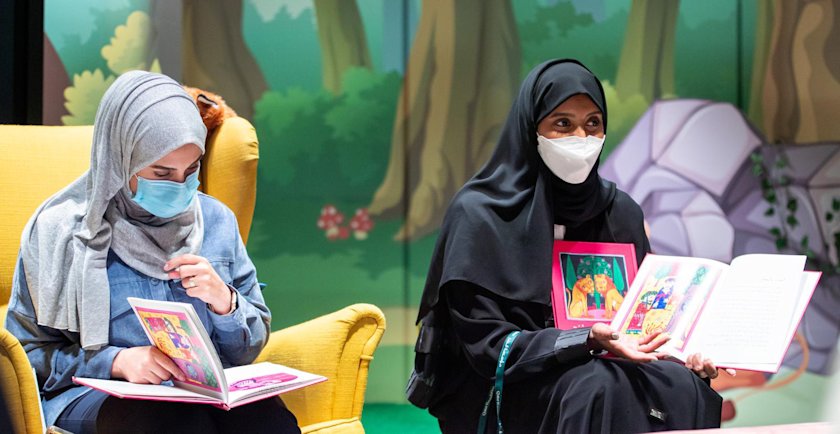
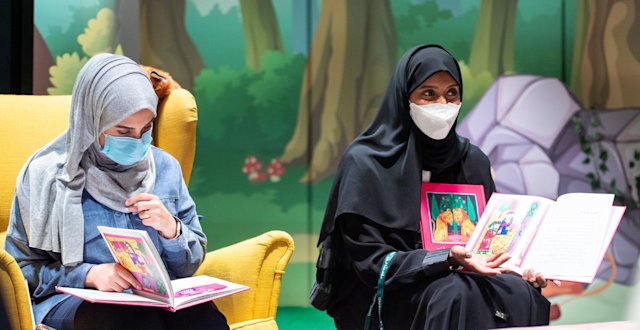
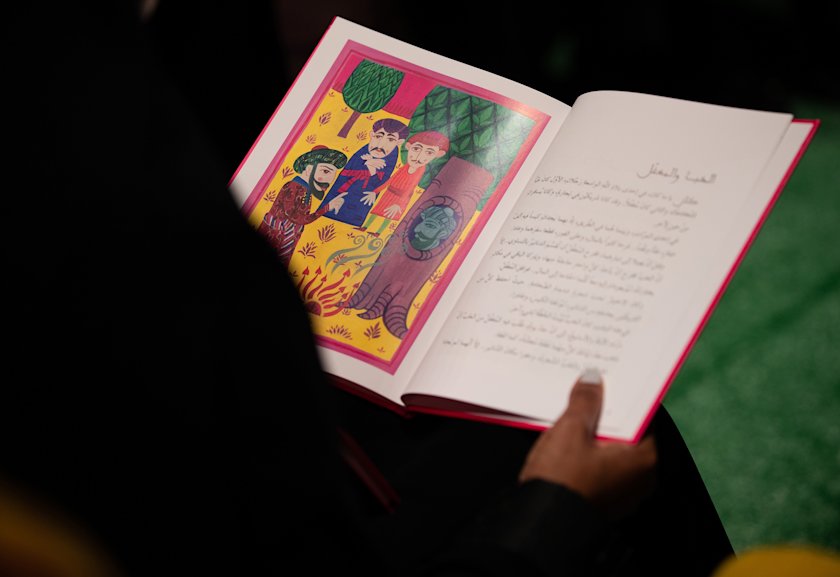
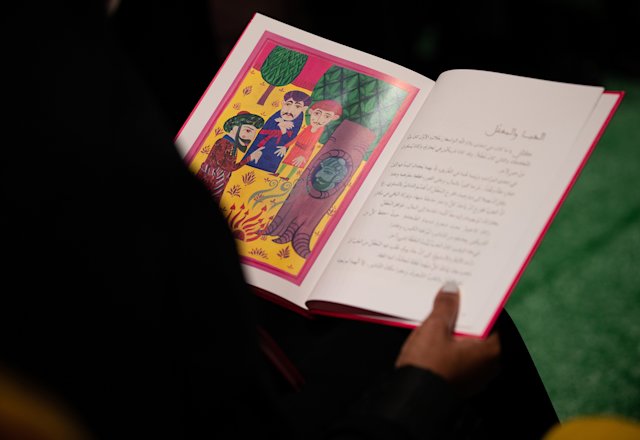
The One Book, One Doha campaign will be the largest reading campaign in Qatar, where everyone reads together and shares the passion for reading to continue building an educated and more cohesive society.
Awarded for Excellence
Accolades flowed the way of members of QF’s community in March – including 23 of its students and one of its teachers, who were named as recipients of Qatar’s 15th Education Excellence Awards.
Among them was 14-year-old Fatima Saad AlMohannadi, a student at Qatar Academy Al Khor and a Platinum Medal awardee in the Preparatory School category, who summed up her achievement by saying: “Receiving this award is an honor – it inspires me to serve Qatar and continue my journey of excellence in the future.”
An interactive audiovisual learning series produced by faculty and students at QF partner university Northwestern University in Qatar claimed a prestigious Webby Award, while Muneera Al-Baker – a student at QF partner university Carnegie Mellon University in Qatar – was among the team that won Best Creative Idea at Healthcon 2022 in Dubai for developing a campaign warning about the dangers of e-cigarettes.
And QF’s Doha Debates scooped no fewer than nine international prizes for its media content focusing on social justice, with documentaries on issues including the plight of Afghan and Rohingya refugees and the working conditions of Italian migrant laborers being honored.
Accolades flowed the way of members of QF’s community in March – including 23 of its students and one of its teachers, who were named as recipients of Qatar’s 15th Education Excellence Awards.
Among them was 14-year-old Fatima Saad AlMohannadi, a student at Qatar Academy Al Khor and a Platinum Medal awardee in the Preparatory School category, who summed up her achievement by saying: “Receiving this award is an honor – it inspires me to serve Qatar and continue my journey of excellence in the future.”
An interactive audiovisual learning series produced by faculty and students at QF partner university Northwestern University in Qatar claimed a prestigious Webby Award, while Muneera Al-Baker – a student at QF partner university Carnegie Mellon University in Qatar – was among the team that won Best Creative Idea at Healthcon 2022 in Dubai for developing a campaign warning about the dangers of e-cigarettes.
And QF’s Doha Debates scooped no fewer than nine international prizes for its media content focusing on social justice, with documentaries on issues including the plight of Afghan and Rohingya refugees and the working conditions of Italian migrant laborers being honored.
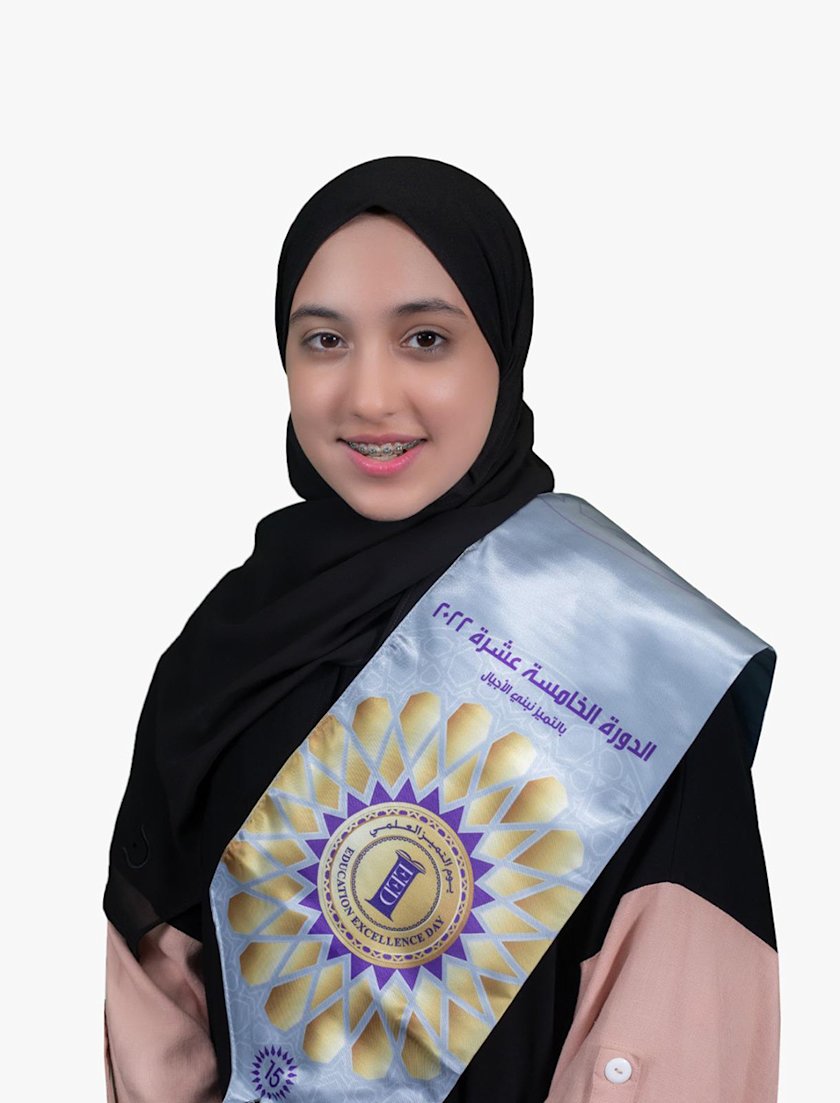
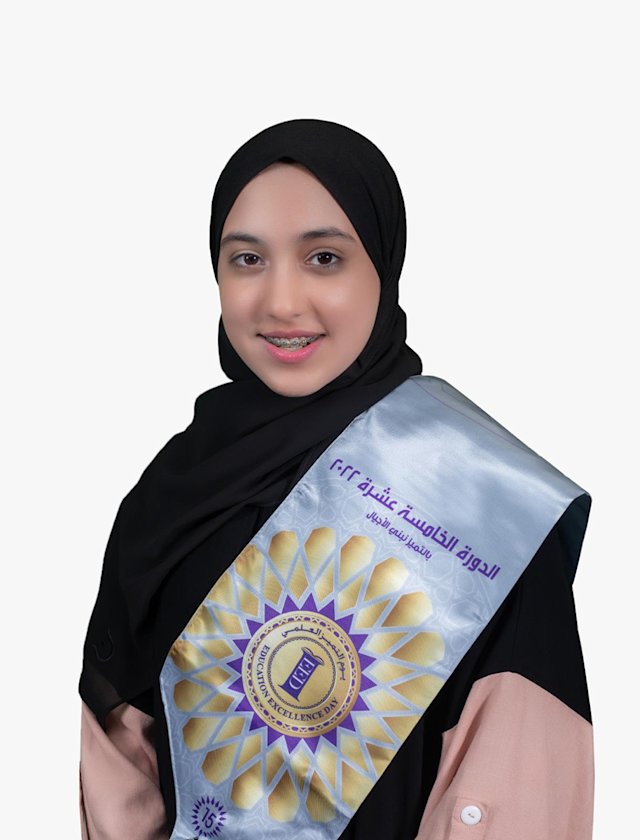
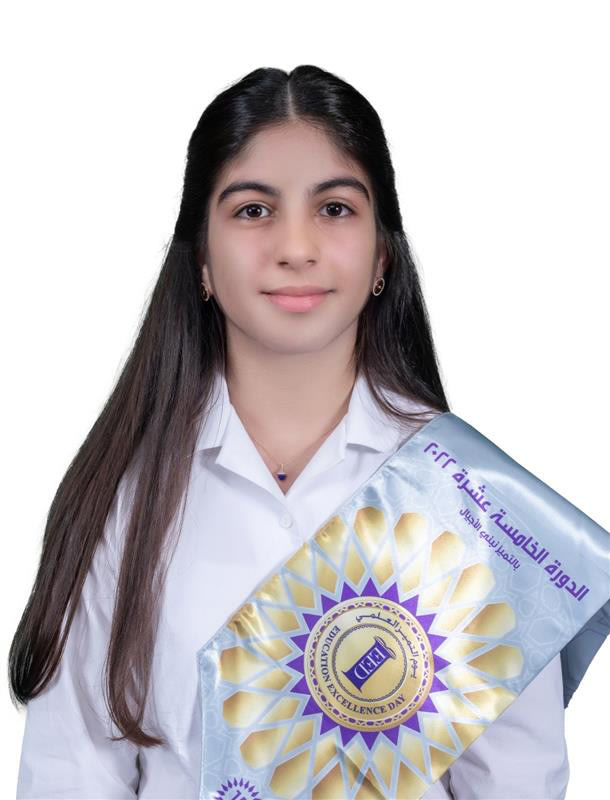

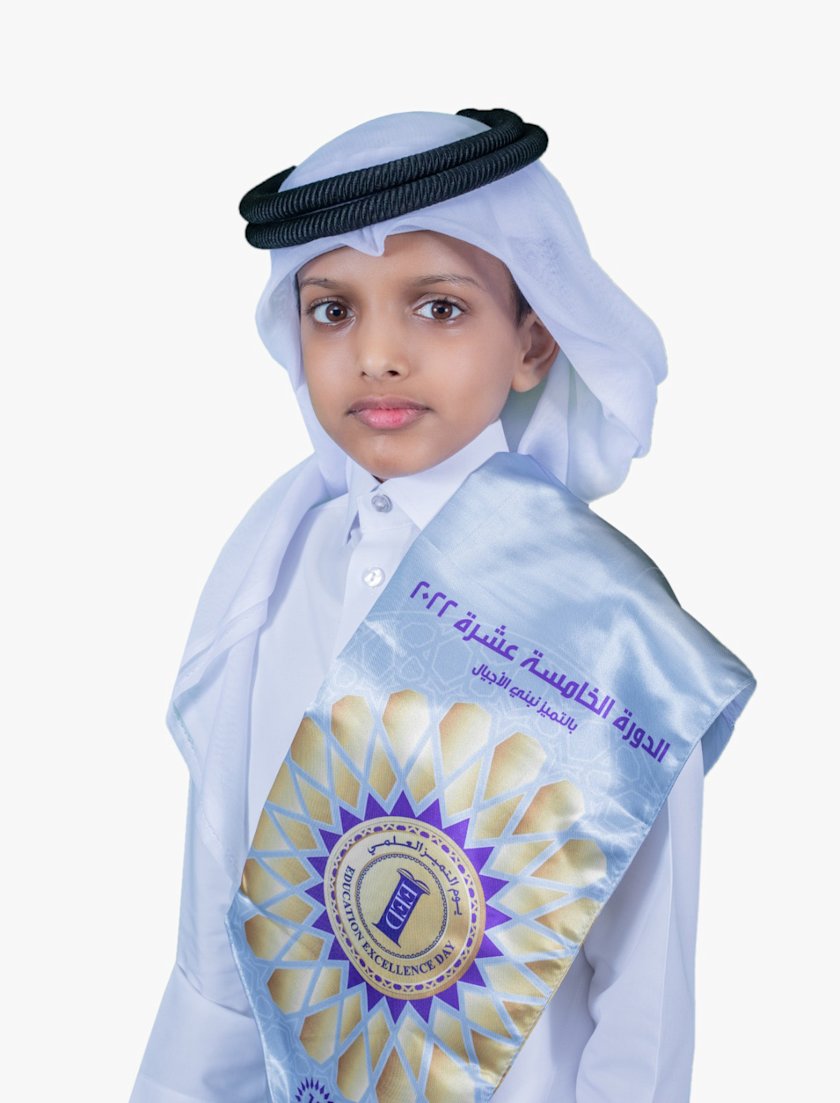
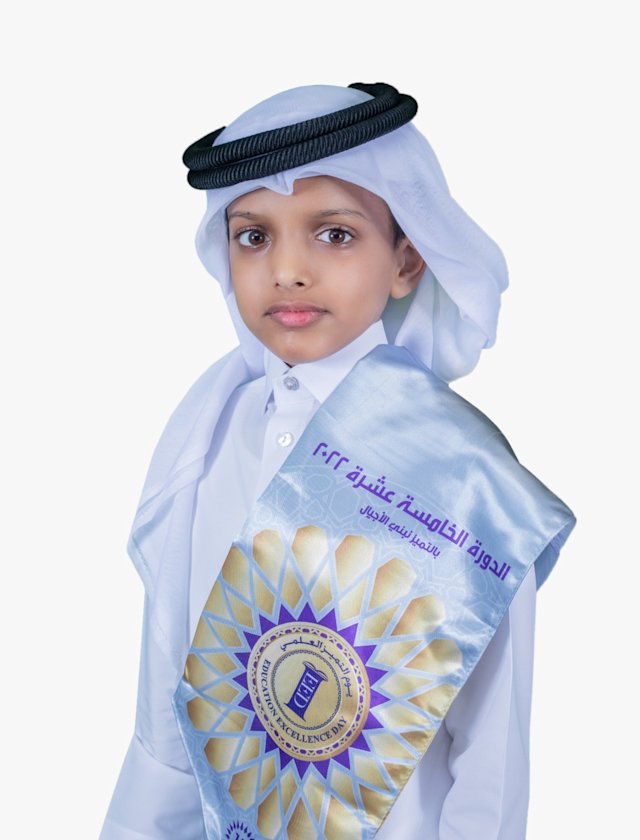
As the Eiffel Tower distinguishes France, I hope to one day design and build a beautiful and innovative landmark for Qatar.
Exploring Arabic
Reflecting QF’s role as a custodian of the Arabic language, one of its partner universities launched a research project exploring and analyzing the Qatari dialect, and its variations from generation to generation.
As well as studying the evolution of the dialect, the QF-funded Carnegie Mellon University in Qatar project, also involving fellow partner university Georgetown University in Qatar and QF member Doha International Family Institute, is creating a digital tool to explore its pronunciation, usage, and expressions, with the aim of helping to preserve and promote Arabic language learning in Qatar.
The practice of dialogue and reasoned argument in the Arabic language was given a new dimension by QF’s QatarDebate, which staged Qatar’s first one-on-one debate competition.
And in collaboration with the Islamic Cooperation Youth Forum, QF member Hamad Bin Khalifa University’s (HBKU) College of Islamic Studies welcomed around 60 local and international students to discuss the role of “football diplomacy” in driving social change, at the university’s first International Qatar Model Organization of Islamic Cooperation.
Reflecting QF’s role as a custodian of the Arabic language, one of its partner universities launched a research project exploring and analyzing the Qatari dialect, and its variations from generation to generation.
As well as studying the evolution of the dialect, the QF-funded Carnegie Mellon University in Qatar project, also involving fellow partner university Georgetown University in Qatar and QF member Doha International Family Institute, is creating a digital tool to explore its pronunciation, usage, and expressions, with the aim of helping to preserve and promote Arabic language learning in Qatar.
The practice of dialogue and reasoned argument in the Arabic language was given a new dimension by QF’s QatarDebate, which staged Qatar’s first one-on-one debate competition.
And in collaboration with the Islamic Cooperation Youth Forum, QF member Hamad Bin Khalifa University’s (HBKU) College of Islamic Studies welcomed around 60 local and international students to discuss the role of “football diplomacy” in driving social change, at the university’s first International Qatar Model Organization of Islamic Cooperation.
The outcome of this research effort can be used to develop curricula that helps Qatari students learn Standard Arabic.
HBKU’s College of Islamic Studies offers programs in:
- Islam and Global Affairs
- Applied Islamic Ethics
- Contemporary Islamic Studies
- Islamic Art, Architecture and Urbanism
- Islamic Finance
A Pipeline of Innovation
From opening up access to modern Arabic literature, helping charities manage their donations, and simplifying medicine delivery, to connecting freelancers and providing legal news and e-commerce service, six new Qatari tech startups were supported to take the next steps on their journey by QF’s Qatar Science & Technology Park.
The ventures were the latest recipients of the technology innovation hub’s Product Development Fund, which encourages local startups and SMEs to develop hi-tech products and services relevant to Qatar’s market needs.
And 12 aspiring tech startups had the opportunity to pitch their ideas to an audience of entrepreneurs, investors, and tech industry experts as the 12th edition of QSTP’s XLR8 program – offering three months of training and mentorship, enabling innovators to transform ideas into commercially viable businesses – reached its Demo Day stage.
According to QSTP’s Executive Director, Yosouf Al-Salehi: “With each XLR8 cycle, we are bolstering Qatar’s pipeline of innovative thinkers and tech creators, whose contributions can not only advance the national entrepreneurial ecosystem, but also help shape the future of technology, businesses, and society in our country and beyond.”
From opening up access to modern Arabic literature, helping charities manage their donations, and simplifying medicine delivery, to connecting freelancers and providing legal news and e-commerce service, six new Qatari tech startups were supported to take the next steps on their journey by QF’s Qatar Science & Technology Park.
The ventures were the latest recipients of the technology innovation hub’s Product Development Fund, which encourages local startups and SMEs to develop hi-tech products and services relevant to Qatar’s market needs.
And 12 aspiring tech startups had the opportunity to pitch their ideas to an audience of entrepreneurs, investors, and tech industry experts as the 12th edition of QSTP’s XLR8 program – offering three months of training and mentorship, enabling innovators to transform ideas into commercially viable businesses – reached its Demo Day stage.
According to QSTP’s Executive Director, Yosouf Al-Salehi: “With each XLR8 cycle, we are bolstering Qatar’s pipeline of innovative thinkers and tech creators, whose contributions can not only advance the national entrepreneurial ecosystem, but also help shape the future of technology, businesses, and society in our country and beyond.”
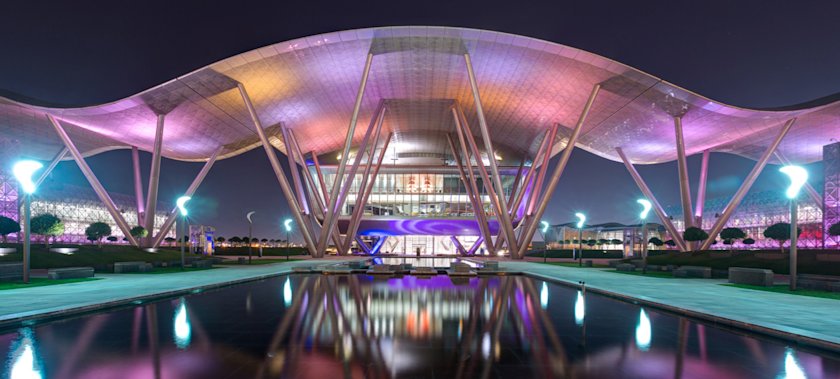
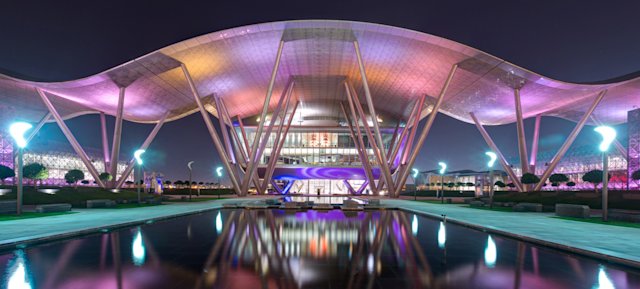
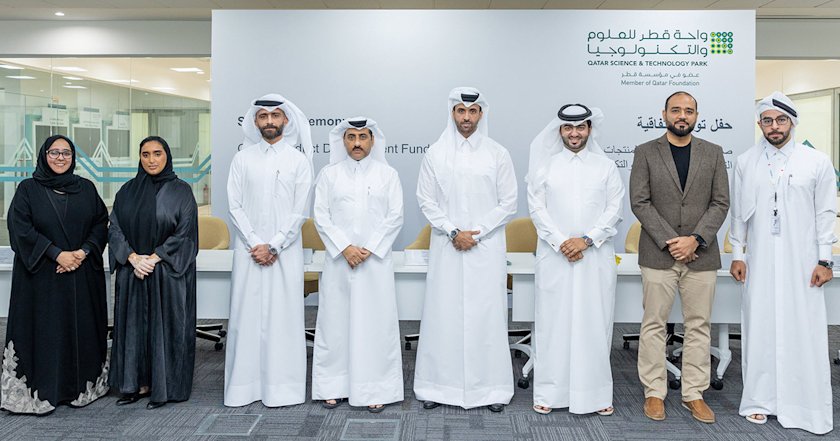
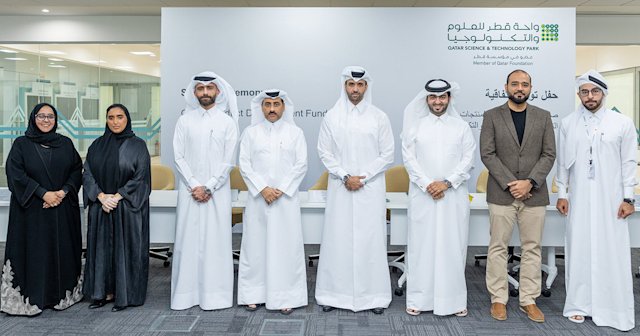
We encourage all Qatari entrepreneurs to stay creative and focused on their ambitions, and to seek the right support – which is readily available via QF’s RDI ecosystem.
More than 35 tech ventures have been supported by QSTP’s Product Development Fund